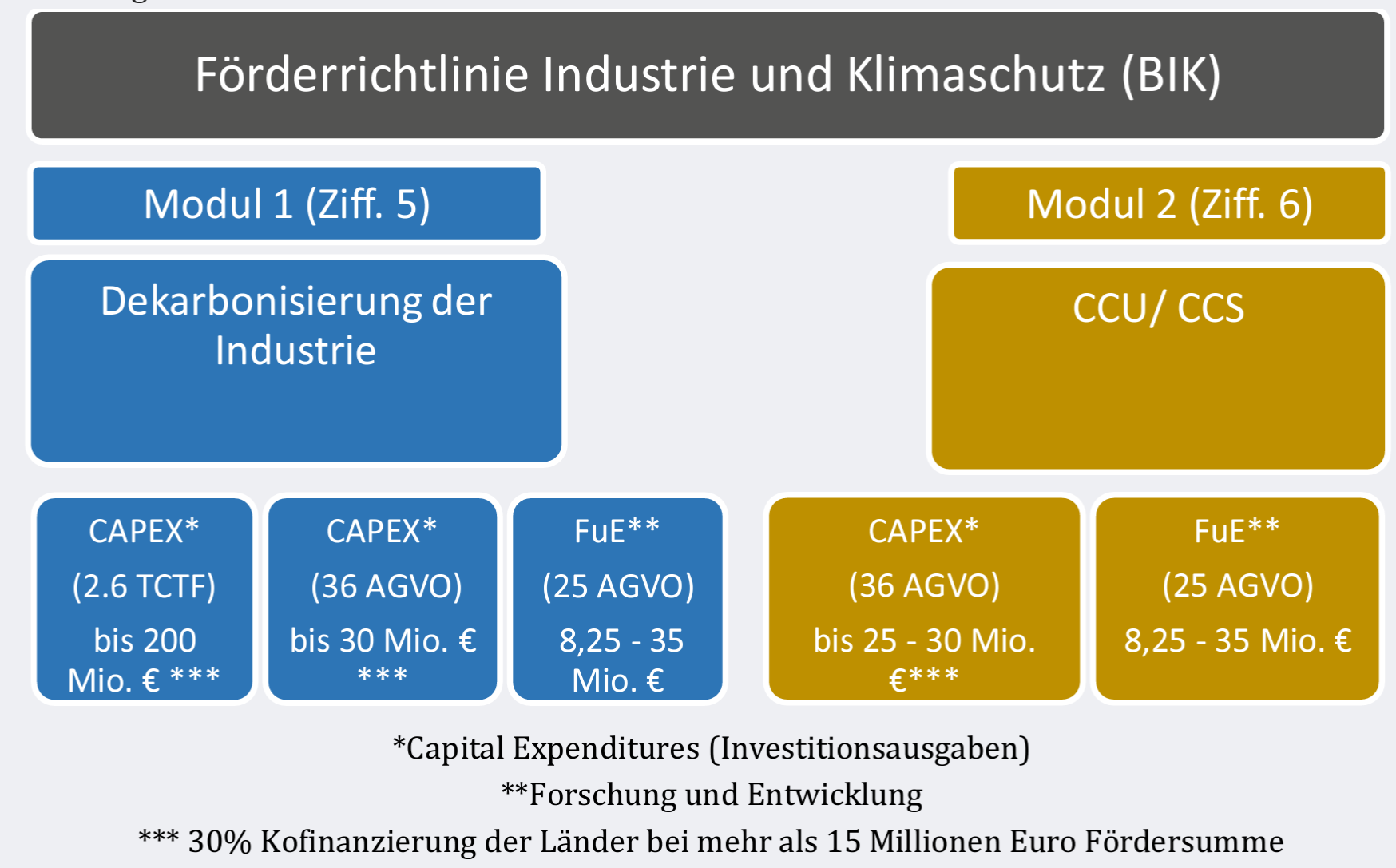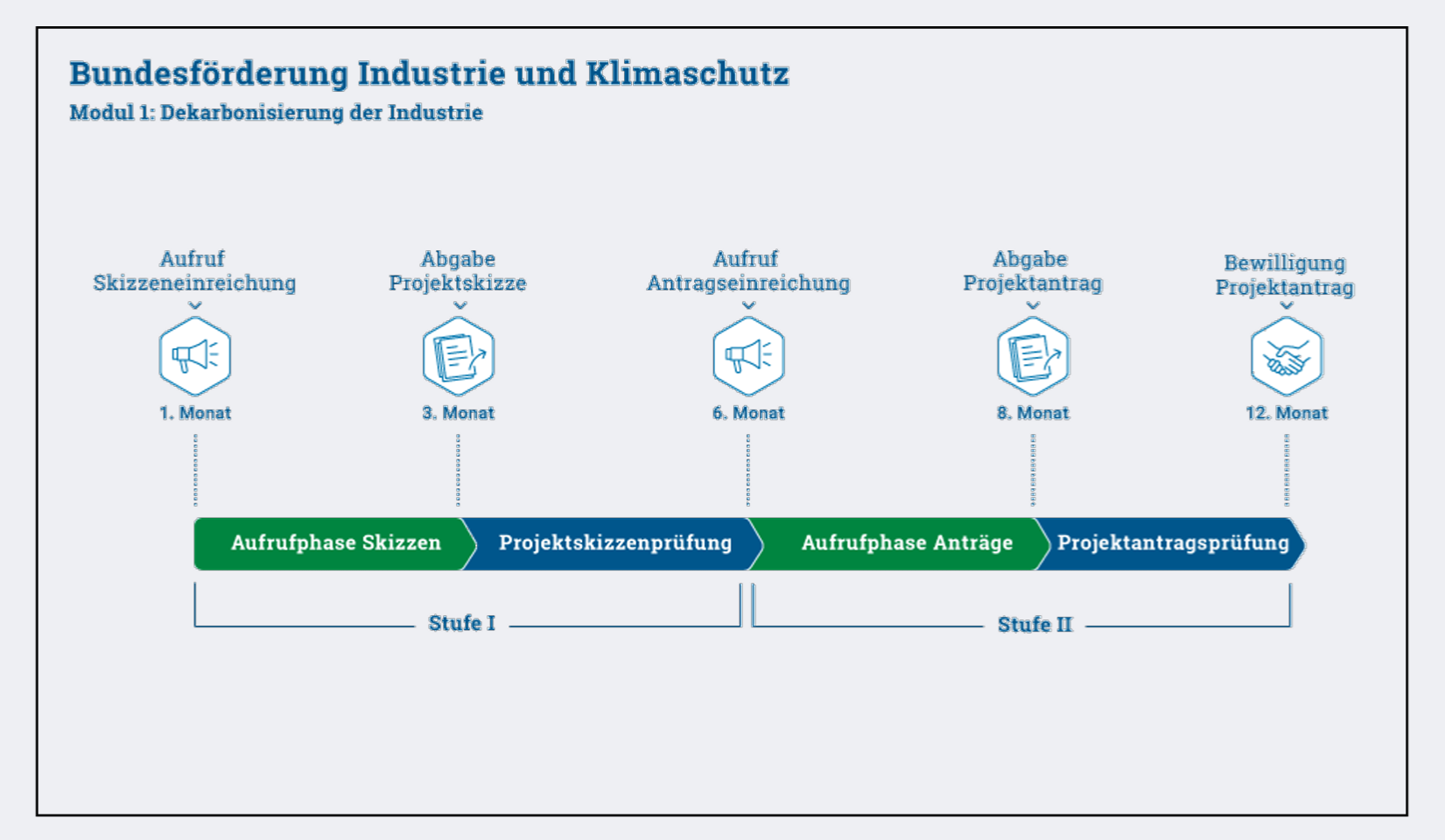Mhe new BIK funding supports small and medium-sized industrial companies in their decarbonization efforts.
According to current planning, around 3.3 billion euros are available for the funding program for the entire duration of the program.
The first call for funding is expected to start in September 2024.
Companies will then have three months to submit their projects.

Two funding modules are available under the BIK:1. funding for decarbonization projects (Module 1) All industrial companies that plan or operate plants with industrial processes and want to save at least 40 percent of their CO2 emissions in production through investments or research projects are eligible.
The funding recipients must have a permanent establishment or branch in Germany, as the project must also be implemented in Germany.
Module 1 is aimed at companies in the energy-intensive basic materials industry, such as the chemical basic materials industry, the steel and foundry industry, glass industry, ceramics industry, paper and pulp industry, cement and lime industry.
However, funding is expressly not limited to these sectors.
The maximum funding in Module 1 is up to 200 million euros per company.
Module 1 is the continuation of the successful “Decarbonization in Industry” programme, which has funded 29 projects throughout Germany with a volume of around 578 million euros.

2. funding for CCU and CCS (Module 2) In line with the key points of the Carbon Management Strategy, which were adopted by the Cabinet on 29.05.2024 and which define Germany’s approach to the capture, storage and use of CO2 (CCS/CCU), there is a funding opportunity for CCS/CCU investment and innovation projects.
Funding is limited to CO2 emissions that are difficult to avoid.
In the first funding call, investment projects in the lime, cement and thermal waste treatment sectors are eligible for funding; innovation projects can also be funded in the basic chemicals, glass and ceramics sectors.
BIK is thus making an initial contribution to implementing the key points of the Carbon Management Strategy.
Investment projects are eligible for funding of up to 30 million euros; industrial research projects are eligible for funding of up to 35 million euros.
Here are the links to the most important documents:
